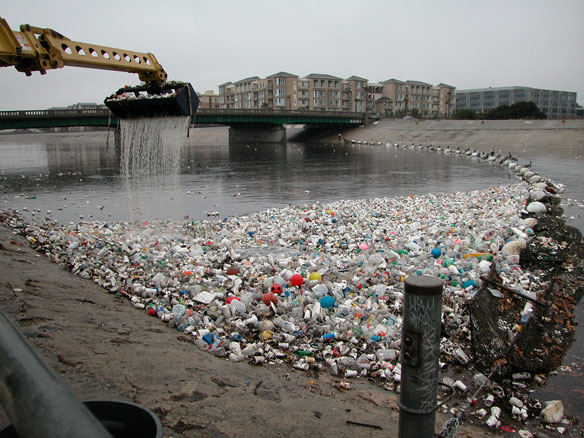Important : Because this year’s World Environment Day theme was “Beat Plastic Pollution. India was global host for WED.
Context
-
As a major producer of plastic waste that ends up in the oceans, India is arguably the best place to host World Environment Day.
Rules
-
Both the Solid Waste Management Rules and the Plastic Waste Management Rules of 2016, which built on previous regulations, mostly remain on paper.
-
State governments have simply not given them the necessary momentum, and the producers of plastic articles that are invariably used just for a few minutes have shown little concern about their negative environmental impact.
-
The Centre’s somewhat liberal estimate shows over 60% of about 25,000 tonnes of plastic waste generated daily is collected.
-
That essentially means a staggering 10,000 tonnes of trash is being released into the environment, a lot of it going into the sea.
Concerns
-
Not every piece of plastic collected by the system is scientifically processed.
-
The Ganga-Brahmaputra-Meghna river system is on the UN map of 10 rivers worldwide that collectively carry the bulk of the plastic waste into the oceans.
-
The effects are evident: they threaten marine life and the well-being of people, as microplastics are now found even in drinking water.
Voluntary efforts
-
In their response to the crisis, communities and environmentally minded individuals are ahead of governments and municipal authorities.
-
They segregate waste, compost at home, conduct “plastic free” social events and help recover materials that would otherwise just be dumped in the suburbs and wetlands.
-
But, valuable as they are, voluntary efforts cannot achieve what systemic reform can.
Challenges
-
The provisions of the Plastic Waste Management Rules require manufacturers of compostable bags to get a certificate from the Central Pollution Control Board, but this has not stopped counterfeit products from entering the market.
-
Local bodies mandated under rules to ensure segregation, collection and transfer of waste to registered recyclers have spectacularly failed to fulfil their responsibilities.
-
The State Level Monitoring Committees provided for under the rules have not been made accountable.
-
The waste management framework is dysfunctional, and Mr. Vardhan’s assertions on beating plastic pollution alone will not inspire confidence.
-
India and the world face a plastics crisis. Solving it will take more than slogans.

Conclusion
-
India’s framework on discouraging its use is in disarray.
-
It is the Centre’s responsibility to ensure that the Environment (Protection) Act, the overarching law that enables anti-pollution rules to be issued, is implemented in letter and spirit.
-
Ideally, regulation should help stop the manufacture of single-use plastic articles such as carry bags and cutlery, and encourage the use of biodegradable materials.